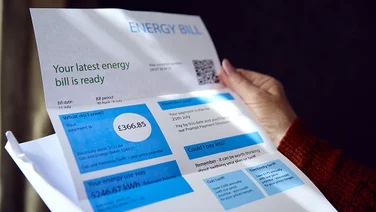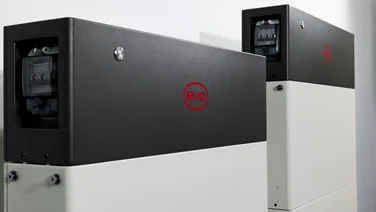- Get £7,500 towards a new heat pump installation from the government
- Homes and businesses can apply
- The installer applies for the grant on your behalf
- Find out if you are eligible and how to apply here

The Boiler Upgrade Scheme (BUS) is a government funding scheme intended to support the decarbonisation of homes and small non-domestic buildings in England and Wales.
According to the National Audit Office, heating the UK’s 28 million homes accounts for 18% of all of the UK’s greenhouse gas emissions. The BUS is designed to help reduce that figure.
The scheme provides upfront capital grants of up to £7,500 to encourage property owners to replace existing fossil fuel heating with more efficient, low-carbon heating systems including heat pumps and biomass boilers.
Under the scheme, homes and businesses can get £7,500 off the cost and installation of an air source heat pump (ASHP) or a ground source heat pump (GSHP). You can also get £5,000 off the cost and installation of a biomass boiler.
If you’re interested in receiving a free quote for an air source heat pump, simply pop your details in this form and a trusted MCS-certified installer will get back to you, and be able to help you apply for the grant.

Get £7500 towards your heat pump installation through a trusted installer
An MCS-certified heat pump installer can apply for the Boiler Upgrade Scheme on your behalf, get a quote from one now
How does the scheme work?
The Boiler Upgrade Scheme operates on a “first-come, first-served basis,” with customers having to rush to register their interest with air source or ground source heat pump installers.
Installers then apply for the £7,500 grant on behalf of customers and remove that amount from the cost of the heat pump installation.
This makes the grant simpler for homeowners than the now-defunct Green Homes Grant, which required you to apply for energy-saving improvements yourself.
The scheme cannot be used to install hybrid heat pump systems (like a combined gas boiler and air source heat pump).
The scheme also sets a maximum capacity of 45kWth for individual systems and 300kWth for shared ground loops.
How popular is the Boiler Upgrade Scheme?
According to the latest statistics from the UK government, as of August 2024, some 51,872 applications had been received. Most of these (about 97%) were for ASHPs, with the rest for GSHP and biomass boilers.
According to our recent National Home Energy Survey, around 28% of the UK population are aware of the scheme, making it one of the government’s most well-known grants and funding schemes for low-carbon technology.
In October 2024, the government committed a further £50 million to meet booming demand.
One of the reasons for the popularity of the scheme is the simplicity of its eligibility criteria.
Am I eligible for the Boiler Upgrade Scheme?
As of October 2024, Ofgem simplified the BUS eligibility criteria.
To be eligible, you must meet the following requirements:
- You must own the property you’re applying for, including if it’s a business, a second home, or a property you rent out to tenants
- You must be replacing fossil fuel heating systems, such as oil, gas, electric of LPG
- You must have a valid EPC certificate
You can get the BUS grant for a biomass boiler if you meet all these requirements:
- You property is off the gas grid
- Your property is in a rural location
- Your boiler has an emissions certificate showing that polluting emissions are kept to a minimum
The BUS is not available to properties that have already received public funding for a heat pump or biomass boiler in the past, through schemes like the Energy Company Obligation scheme.
Properties considered to be social housing under the Housing and Regeneration Act 2008 are also not eligible.
New builds are also not eligible, unless they have been completed with a fossil fuel boiler.
If your property is a custom-built home, it won’t need an EPC to qualify, as you will have had to follow the latest eco-friendly building regulations to complete it. You will also need to be the person who built the home to apply, and it must never have been owned by business.
If you meet all of these requirements, an installer can apply to get a discount on an air or ground source heat pump for you.
To qualify for a £5000 biomass boiler discount, you must fulfill some additional criteria in addition to the ones listed above. To start with, your property must be in a rural area (one with fewer than 10,000 residents), and have no mains gas connection.
The building must also meet high emissions standards, which the government has explained is “to mitigate any negative impact on air quality.” Of course, that’s not how emissions work – but it’s certainly true that biomass boilers are better for the climate than gas boilers.

Get £7500 towards your heat pump installation through a trusted installer
An MCS-certified heat pump installer can apply for the Boiler Upgrade Scheme on your behalf, get a quote from one now
How to apply for the Boiler Upgrade Scheme
Until the closure of the scheme in 2028, an installer will be able to apply for a voucher for a heat pump or biomass boiler installation, on a first come, first served basis.
After they receive the voucher, they’ll have three months (120 days) to use it to install an air source heat pump or biomass boiler at your home, or six months if you’re getting a ground source heat pump installed.
After the installation has taken place, they’ll be able to redeem this voucher to reduce the overall cost.
The government has said “this approach allows for a smoother and simpler consumer journey, while maintaining certainty for installers.”
You can start getting quotes now, and when you agree on a figure, your installer will apply for the grant.
Does this make heat pumps affordable?
Yes. The Boiler Upgrade Scheme will reduce the average cost of an air-source heat pump from between £9,000 and £15,000 (depending on spec and location) by £7,500.
According to our calculations on air source heat pump costs, moving from a gas boiler to a heat pump will save you £4,891 over its lifespan.
And this figure will increase as the price of gas stays high, and the price of electricity drops. With renewable energy accounting for a larger proportion of the UK’s energy mix, and natural gas being a finite fossil fuel, it is inevitable that the price of will increase and the cost of electricity will eventually go down.
Installing a heat pump is a vital part of future-proofing your home and reducing your carbon footprint and your reliance on fossil fuels.
Does the scheme go far enough?
Since the BUS began in May 2022, progress has been slow, partly owing to a concerted campaign of myths and misinformation about heat pumps, which we have debunked here.
According to the Microgeneration Certification Scheme (MCS), more than 275,000 certified heat pump installations have been completed in UK homes, as of January 2025.
With that in mind, there is still a long way to go to hit the 3.3 million mark that the Committee on Climate Change (CCC) says the government needs to reach by 2030 in order to achieve its target of net-zero emissions by 2050.
The government has its own goal of 600,000 per year by 2028.
A key limiting factor could be the need for better public awareness of heat pumps and the grants that exist to help overcome the upfront cost.
In the National Home Energy Survey 2024, we revealed that 1-in-4 people in the UK were not aware of any government grants available for low-carbon technology, and only 28% are aware of the BUS.
This is an improvement on the 2023 survey, which found that just 51% of people were even aware of heat pumps.

Get £7500 towards your heat pump installation through a trusted installer
An MCS-certified heat pump installer can apply for the Boiler Upgrade Scheme on your behalf, get a quote from one now







